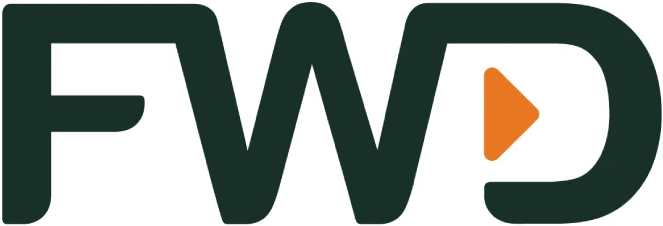
Araw ng Kagitingan 2023 is also about our modern-day, pandemic heroes
We salute the heroes of our times: the medical workers, volunteers, small business owners, delivery riders, OFWs and many more who worked tirelessly during the pandemic.
The worst time of the world brought out the best in humans too. The Covid-19 pandemic now seems like a nightmare that we’ve all awakened from. Looking back at those years—2020 to the beginning of 2022—is like sifting through our saddest collective memories.
But when it all seemed hopeless, people dug deep inside and found the courage to serve others. In those dark years when hospitals were bursting to capacity and everyone we knew had lost somebody dear to them, heroes rose among us.
On Araw ng Kagitingan or The Day of Valor, we pay tribute to the people who made our lives better in the darkest of times.
1. Medical frontliners, health workers
Doctors, nurses, orderlies, technicians, and all other personnel that worked in government and private hospitals risked their lives every day by just showing up in what would have been an otherwise ordinary day at work. Despite the panic and untold grief in hospitals nationwide, and despite their own fears and heartaches, they did their work.
The United Nations (UN) estimates that globally up to 180,000 health workers may have died during the pandemic. “COVID-19 is a powerful demonstration of just how much we rely on these men and women, and how vulnerable we all are when the people who protect our health are themselves unprotected,” WHO Director-General Tedros Adhanom Ghebreyesus said.
2. Community businesses and delivery riders
During the hard lockdowns, our communities opened their kitchens and started selling. Facebook pages within our neighborhoods sprung up to announce what was available for the day. We were not only spared from having to go out to buy food supplies, we were also getting fresh, homecooked meals. And for our home-based entrepreneurs, it was the only thing that saved their financial wellbeing and avoided financial disaster.
Our community kitchens would not have been possible without delivery riders who also risked getting infected as they were going from house to house delivering food and supplies. The upside to those times was that small entrepreneurs were born—most of them mommies who worked long hours in their kitchens. They saw a need and served that need. Private companies like PLDT Home jumped in to offer support and training to these Madiskarte Moms and other home-based entrepreneurs.
3. Vaccine makers
In October 2020 or half a year after the pandemic broke, there were 169 Covid-19 vaccines under development and 26 of them were already in clinical trials. This was the fastest that vaccines were ever developed, tested, manufactured, and eventually deployed. By August 2021, we could finally see the light at the end of a very long tunnel. The US FDA approved the first vaccine for Covid-19 made by Pfizer-BioNTech. Others followed: Moderna, Sinovac, AstraZeneca, and Sputnik, among others.
Compared to other Asian countries, vaccines were much later deployed in the country. Keeping calm above the challenge were our heroes: nurses and other medical workers jabbing us. Later on, private companies helped in the procurement and deployment of vaccines.
4. OFWs
One of the hardest hit sectors in our society were the OFWs. Millions of OFWs working on cruise and commercial ships, hotels, airlines, private homes and offices were suddenly jobless. A year and half into the pandemic, in November 2021, the Department of Labor and Employment estimated that 800,000 OFWs had returned home and rejoined their families.
OFWs who had made so many sacrifices to earn abroad for the sake of their families and financial wellbeing had a different kind of reunion this time. It was a bittersweet moment filled with frustration. First, they had to be quarantined for 14 days; second, they were now unemployed without knowing for how long; and third, many came home to an incomplete family with some of their loved ones, like their elderly parents, succumbing to Covid-19.
The pandemic highlighted that there is no such thing as total job security even for skilled OFWs. Recognizing this—and our modern-day heroes’ sacrifice—FWD Life Insurance created a plan especially made for OFWs. FWD Family Hero provides life insurance, critical illness protection, and hospital cash benefit while giving them the option to invest with either Set for Life or Manifest—helping them protect and take care of their families’ future wherever they are in the world.
Talk to an FWD financial advisor on how you, too, can protect your family and enjoy the life you’ve worked so hard to have.
5. Private sector, volunteers
At the beginning of the pandemic, when it was confusing and chaotic for all, the private sector—corporations, NGOs, volunteer individuals—pitched in. In the first wave of the distribution of ayuda, Project Ugnayan was organized. It was composed of 27 business groups from different sectors—banking, real estate, retail, food and insurance among others—that worked with Caritas Manila and the Philippine Disaster Relief Foundation to reach the slums and the most vulnerable in Metro Manila. This would be replicated many times over on a smaller scale throughout the pandemic.
Then there were the numerous community pantries that distributed food and relief goods for all. In parts where efforts fell short, our pandemic heroes—volunteers of all ages—stepped in to provide for the everyday needs of the people.
With the pandemic now seems over, we look back at it with a sigh of relief and a fresh spirit for living. We look back at that extraordinary period of the world with incredulity that it even happened. But the pandemic showed us that, above all else, there are heroes in our midst and humanitarian efforts will always give us the courage and inspiration to fight and bounce back.




